In this article, I discuss the importance of making yourself aware of the advantages of positive behaviours as a way of changing negative behaviours and some ideas on how to accomplish this goal.
In my work as a Calgary psychologist and a Cochrane psychologist, I often have clients who have the goal of stopping a behaviour which has negative effects on themselves and people in their lives. Alcohol or drug use, gambling, procrastination as well as eating issues such as bulimia and binge-eating are a few examples. Most clients struggle with being tempted to engage in these behaviours because of their perceived benefits. In contrast, they report that when they engage in these behaviours they are not thinking of the disadvantages. As a result, it is not surprising that they regularly give in to temptation and continue to engage in these behaviours despite their negative effects.
In contrast, becoming aware of the advantages of the alternatives to negative behaviours makes it more likely that you will think twice about engaging in these behaviours despite their perceived benefits. In the following sections, I will discuss how you can make yourself more aware of the advantages of alternatives to negative behaviours you’re engaging in and demonstrate how this can allow you to reduce the frequency of these behaviours.
Why we engage in negative behaviours: High awareness of the advantages combined with low awareness of the disadvantages
A key early step in reducing or ending a negative behaviour pattern is to ‘get real’ with yourself regarding why you engage in the behaviour. This involves critically examining why you make the choice to engage in the behaviour rather than making the alternative choice not to engage in it. Framing your problem in this way puts the ability to perform or not perform the behaviour in its proper place—within your control as a choice you make. In turn, this puts you on a path toward the possibility of making the choice not to do the behaviour and instead to choose to engage in alternative positive behaviours.
Why do we make the choice to engage in behaviours which have negative effects on us and the people we care about? It usually comes down to the moment when we have a choice whether to engage in the behavior. At this moment, we are typically very aware of the perceived benefits of the behaviour and very unaware of the downsides to the behaviour.
For example, you might choose to drink alcohol because at a given moment you are focused on how good it’s going to taste without being aware of the negative effects of drinking on your work and your relationships. You might choose to gamble because you dwell in the moment on the excitement of playing or the good feeling you expect to have if you win and are less aware of the more common result that your ability to support yourself or your family will suffer. You might choose to smoke because you imagine in the moment how relaxed you will feel when you have a cigarette and less on the damage smoking causes to your health.
At these times, you’re unlikely to be aware of the advantages of doing anything other than the negative behaviours you’re trying to stop. The predictable result is that you choose to continue these behaviours despite their negative consequences. In the following section, I will discuss how you can make it less likely you will continue to choose to engage in negative behaviours despite their perceived benefits to you at those moments when you are faced with the choice.
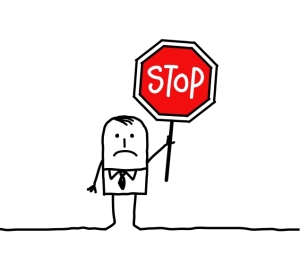
How to stop engaging in negative behaviours: Increase awareness of their disadvantages
The key to decreasing and eliminating negative behaviours is to increase your awareness of the disadvantages of these behaviours—or, phrased differently, to increases your awareness of the advantages of more favourable alternatives to these behaviours. Doing so will make it more likely you will choose the positive alternative behaviours instead of the negative behaviours because you will be aware of the information necessary to help you make this choice.
The first step is to make a list of the advantages of the positive behaviour alternatives. For example, a list of advantages of the alternatives to the behaviour of substance use might include having better relationships, being more successful at work, getting a good night’s sleep, feeling better about yourself and being in a better financial position.
The next step is to make yourself aware of these advantages on a regular basis. One effective way to do this is to use the method recommended by psychologist Dr. Judith Beck in The Beck Diet Solution, a book in which she gives people strategies to help them achieve their weight goals. She recommends writing down the advantages of achieving your goals on an ‘advantages response card’ which you can carry with you. She then recommends that you read the advantages aloud at least twice a day at different times. She also recommends that you read them at any times when you are tempted to engage in the negative behaviours you are trying to stop.
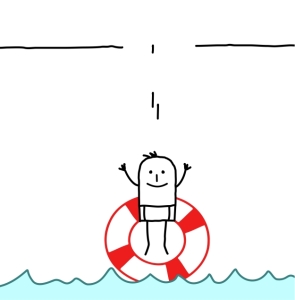
Greater awareness helps you make the right choice
A note of caution: Your having greater awareness of the advantages of alternatives to negative behaviours is unlikely to suddenly make it easy for you to resist engaging in those negative behaviours. After all, there are many good reasons for your having engaged in these behaviours in the form the real and perceived benefits.
As a result, you may still struggle with the choice of whether to engage in these behaviours despite using the strategies discussed in this article. However, I think you will find that if you employ these strategies focused on having greater awareness of the advantages of alternatives to negative behaviours, the outcome of your struggles is more likely to be that you make the right choice in deciding to forego the negative behaviours in favour of their positive alternatives.
If you would like guidance in implementing the ideas from this article, it may be helpful for you to work with a psychologist who specializes in cognitive behavioural therapy (CBT), the form of therapy practiced by the aforementioned Dr. Beck. I use the CBT skills mentioned in this article in my work with clients in addictions counselling, eating disorders counselling and many other types of counselling.
May you become aware of information which helps you make the best behavioural choices,
-Dr. Pat

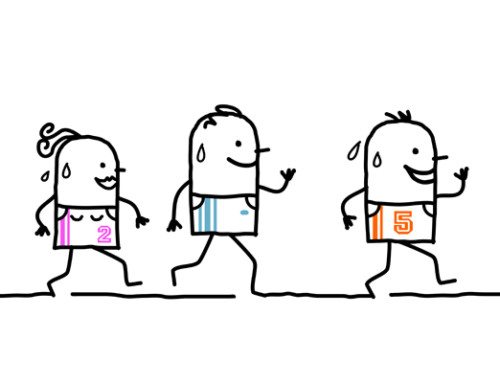
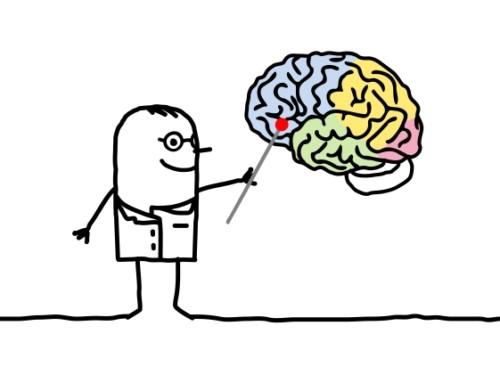
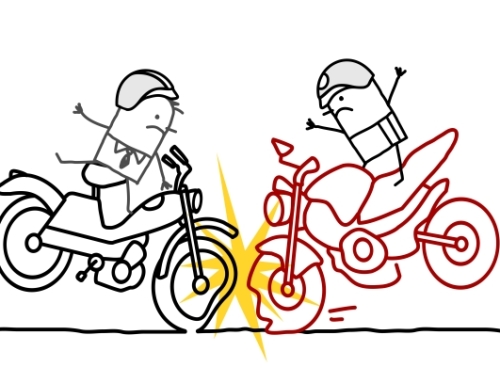
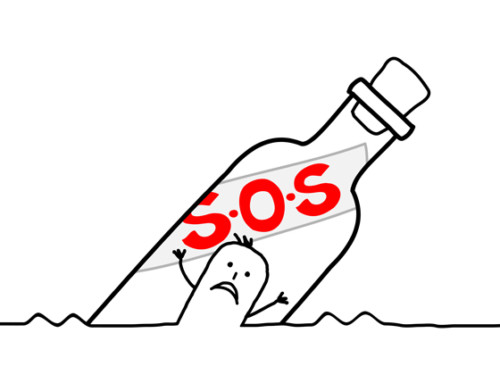
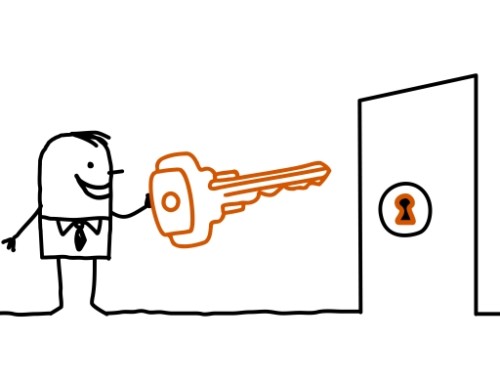
Leave A Comment